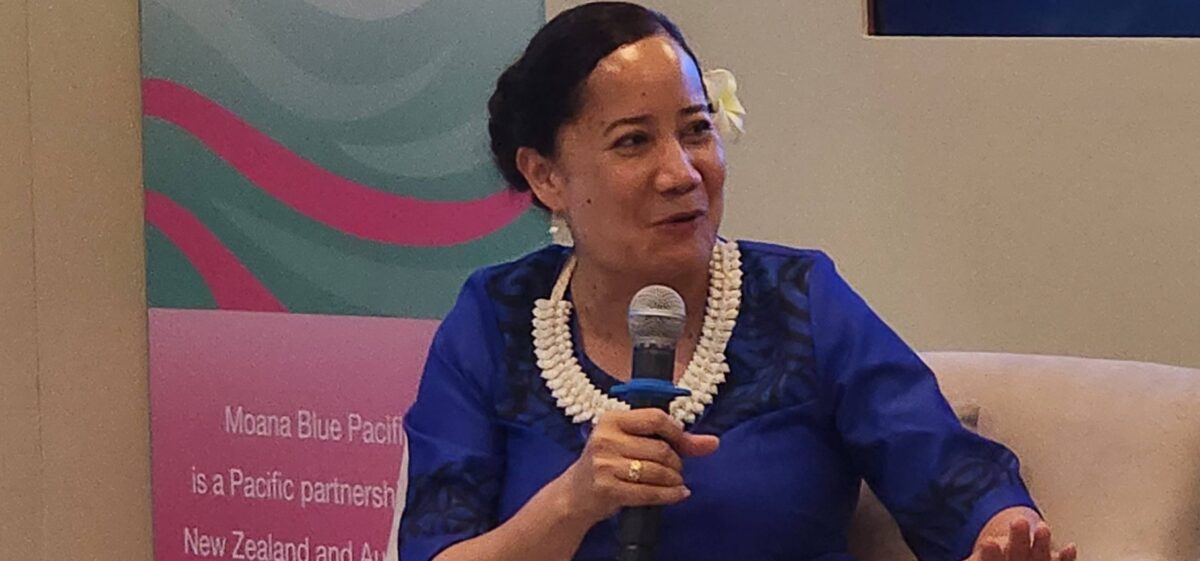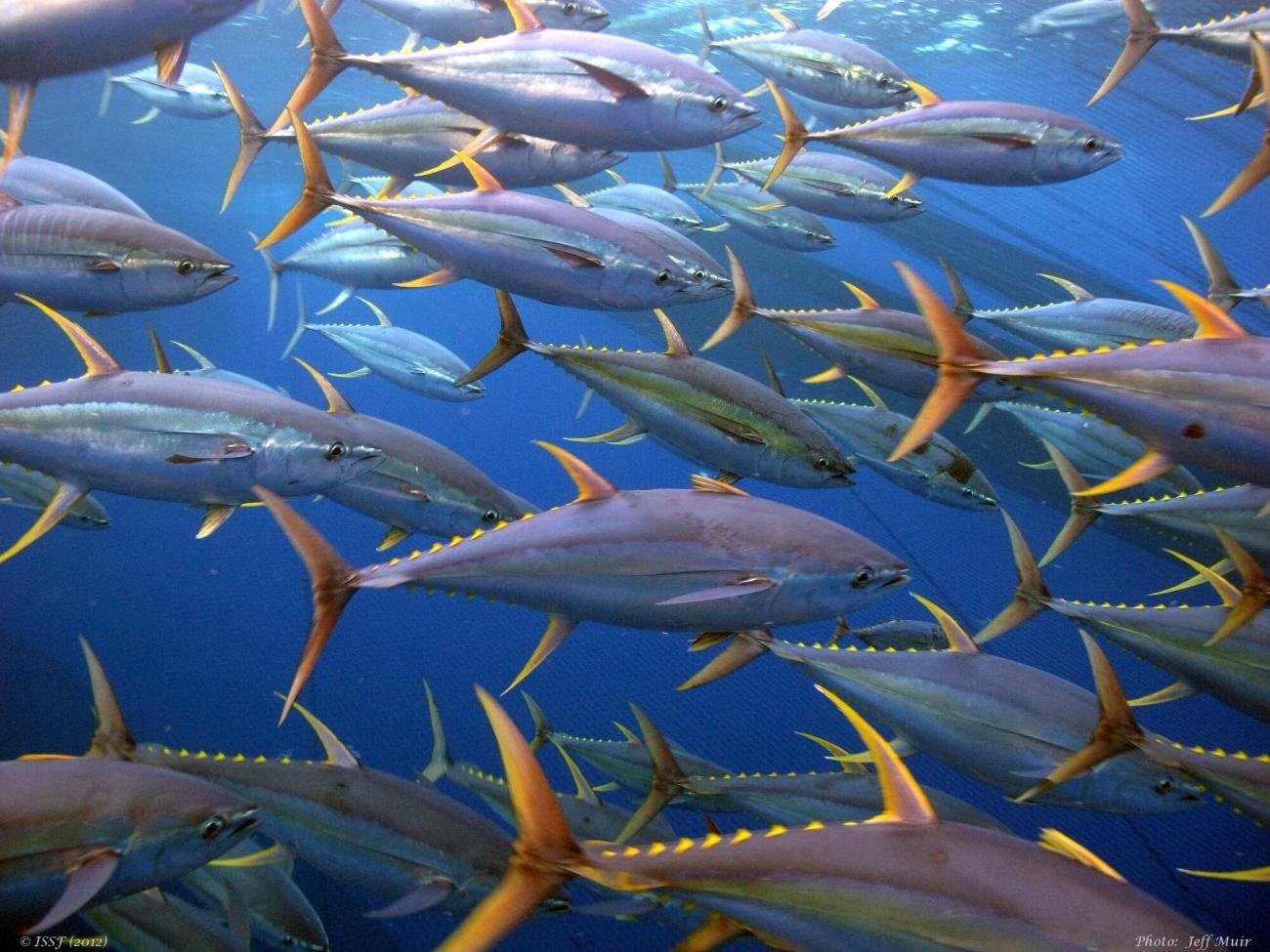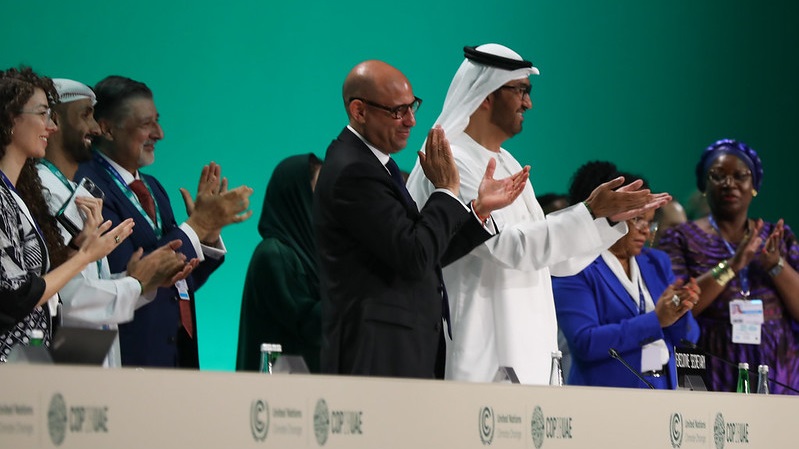The Director General of the Forum Fisheries Agency (FFA) Dr Tupou-Roosen, has highlighted the critical role of Tuna in Pacific fisheries and food security at the COP28 negotiation in Dubai.
“When we think about fisheries, we recognise how vital it is for the region and the world – it provides food for the world in the supply of Tuna,” said Dr Tupou-Roosen.
Focusing on the COP28 negotiations, Dr Tupou-Roosen stressed the importance of aligning with the 1.5-degree goal, citing the clear scientific evidence linking fossil fuel emissions to global warming.
“For us in fisheries, it’s so important because the science is telling us that climate change will affect abundance and distribution in a significant way.
“It will affect the tuna and shift of tuna biomass on the Western Central Pacific Ocean where a lot of our countries are housed to the East.”
“The science is clear. Some confusion of data introduced about the science, but it’s been clear for a long time that fossil fuel needs to be phased out as it directly contributes to global warming,” Dr Tupou-Roosen said in a media interview in Dubai.
She also talked about the potential shift of Tuna biomass from national jurisdictions to the high seas and the related economic impacts.
“What exactly is the reduction in government revenue? At this point, I can provide rough estimates for yellowfin tuna, bigeye tuna, and Skipjack tuna, which are projected to shift to the high seas for a considerable portion by around 2050.
“The latest rough economic estimates suggest a potential loss of up to 20 percent of the government revenue. Currently, the government’s revenue stands at US$480 million, signifying a significant impact.
“As the Tuna Commission is currently engaged, we are receiving the latest scientific data, responding to it, and investing not only in scientific research but also in our people. We aim to understand the impacts at both regional and national levels, with the assistance of the FFA in these efforts.
“As the science becomes more refined, we will gain a better understanding of the actual impacts at the national level. These estimates are particularly focused on the purse seine fishery, and it remains unclear how the longline fishery and South Pacific albacore will be affected. There is still considerable scientific work to be done, but this does not imply any lack of clarity in the existing science,” Dr Tupou-Roosen explained.
Dr Tupou-Roosen spoke on the need for a strong commitment to combat climate change.
“If we can align with the 1.5-degree target, it will reduce the projected loss to 3 percent, acknowledging that it is still a loss, which is why we are actively engaged. However, maintaining the goal at 1.5 degrees represents a less significant loss. Importantly, this does not excuse the responsibility of major greenhouse gas emitters in various countries,” she said.
The FFA DG also stressed the demand to keep global warming within the 1.5-degree limit.
“Get back on track with 1.5 and embed fisheries and oceans into the COP agenda, ensure there is adequate finance and access in a timely manner, those are the type of key things that we advocate from fisheries,” she said.
Reflecting on the recent Tuna Commission meeting in Rarotonga, Cook Islands, Dr Tupou-Roosen highlighted the meeting’s inclusion of climate impacts on Tuna Fishery as a substantive agenda item.
“Indeed, it’s another parallel important meeting that is happening for us in the region the Western and Central Pacific Fisheries Commission (WCPFC) has, for the first time this year, established climate change as a standing agenda item.
“This decision was made in last December, where it was agreed that in any subsidiary body meeting of the Tuna Commission, climate change would be a permanent agenda item. This marks a positive first step, providing a dedicated space for discussions on climate change and elevating its profile in the discussion surrounding Tuna fisheries,” said Dr Tupou-Roosen.
While acknowledging that discussions on managing emissions from vessels in the offshore fishery sector are not at an advanced stage, Dr Tupou-Roosen indicated that FFA is actively working to condition access licenses to ensure the use of environmentally friendly refrigeration gases on fishing vessels.
As COP28 neared its end, Dr Tupou-Roosen’s emphasised the urgent need for action on climate change and its major impact on Tuna and the Pacific.
This story was written by Pita Ligaiula, originally published at PACNEWS on 11 December 2023, reposted via PACNEWS.




